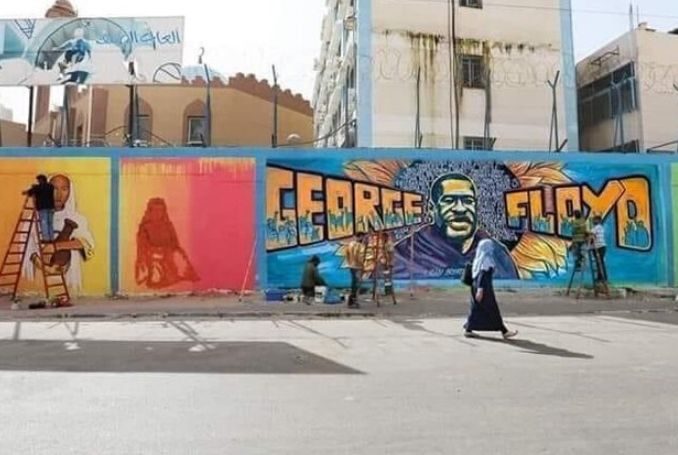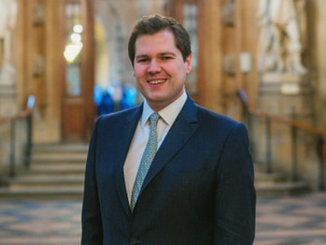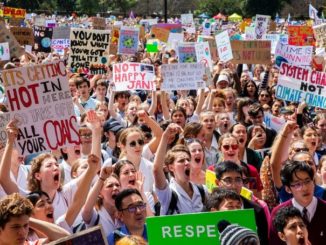
By Benay Blend
On March 25, 2021, at 10 AM MDT, the Amsterdam Centre for Middle Eastern Studies will present an online Facebook event entitled Black Radical Politics, Palestine and Zionism with Prof. Rabab Abdulhadi, Director and Senior Scholar in the Arab and Muslim Ethnicities and Diasporas and Associate Professor of Ethnic Studies/Race and Resistance Studies at the historic College of Ethnic Studies, San Francisco State University.
Given the escalation of violence against all marginalized communities in the US, including the recent shooting of 8 Asian women in Atlanta, Georgia, Abdulhadi’s presentation on the importance of Black/Palestinian coalitions could not come at a better time.
No stranger to Zionist attacks, Prof. Abdulhadi’s advocacy for social justice and commitment to intersectional scholarship, including Palestine Studies, have made her a target by right-wing, racist and Islamophobic groups such as the Lawfare Project, dedicated to inflicting harm on faculty and students who use their civil rights to criticize Israel on U.S. campuses. Despite the stress caused by ongoing attempts to silence her, she has continued her work as a scholar/activist committed to collective work and justice-centered scholarship and pedagogy. She is currently working on oral histories of Palestinian feminist activism and editing a volume on Teaching Palestine: Pedagogical Praxis and the Indivisibility of Justice.
In “Framing Resistance Call and Response: Reading Assata Shakur’s Black Revolutionary Radicalism in Palestine,” Prof. Abdulhadi recalls that her mother told stories of Black American’s “conditions [that] resonated with the stories of Palestinian uprootedness and dispossession that we heard daily” (Abdulhadi, Rabab Ibrahim. “Framing Resistance Call and Response: Reading Assata Shakur’s Black Revolutionary Radicalism in Palestine.” WSQ: Women’s Studies Quarterly, vol. 46 no. 3, 2018, p. 226-231. Project MUSE, doi:10.1353/wsq.2018.0043, p. 226).
Later, reading Assata Shakur’s “To My People” (1973) called to her mind “Palestine both as a transnational imaginary as well as an embodied physical geography” (“Framing Resistance Call and Response,” p. 227). By asserting that each liberation struggle bears its own unique history as well as strategies, she makes clear that her analysis does not engage in “conflating and flattening” (p. 227) the Black liberation movement with that of the Palestinian struggle.
Prof. Abdulhadi’s career includes a long line of lectures, speeches and written work that centers on the alignment of the Palestinian struggle with anti-colonial movements around the world. For example, on the 40th anniversary of the 1968 San Francisco State University Black Student Union/Third World Liberation Front Student-led strike on October 29-November 1, 2008, she participated in a roundtable on third world emergence, challenges, and solidarities.
Utilizing her research on Palestine and anti-colonial struggles of the 60s, Prof. Abdulhadi spoke about what was going on in Palestine at the time of the student strike, in particular as it related to women’s involvement in that struggle. Despite arrests, torture, night raids and detention, she recalled that she was already making connections between resistance to the Israeli state and other liberation movements, such as the Algerian confrontation with the French.
In her forthcoming lecture. Prof. Abdulhadi draws on her own ongoing work with Black activists as well as oral and archival sources. By highlighting a 1970 ad in the New York Times, “An Appeal By Black Americans against the United States Support for the Zionist Government of Israel”, she plans to explore the rationale behind support from such civil rights luminaries as James Lee Boggs, Flo Kennedy, Ella Collins and Askia Toure, among many others.
This document remains relevant for several reasons. As Prof. Abdulhadi notes, it was framed in anti-racist, anti-colonial and anti-imperialist terms that continue to resonate today not only with Palestinians but to any colonized people who participate in liberation struggles of their own.
Moreover, setting up the struggle in such a way encourages other groups who are experiencing the same issues to join in a global coalition. “We, the Black American signatories of this advertisement are in complete solidarity with our Palestinian brothers and sisters,” states the ad, “who like us, are struggling for self-determination and an end to racist oppression.” It names the Palestinian struggle as the vanguard of other anti-colonial revolutions, including Vietnam, Mozambique, Angola, Brazil, Laos, South Africa, and Zimbabwe, a group of countries which today might number more.
As the definition of colonialism becomes more flexible, and the region designated Global South expands to Indigenous people around the world, liberation struggles benefit from strength in numbers of marginalized people who recognize their commonalities but also respect differences in historical development and philosophies.
Indeed, in a recognition far ahead of its time, the 1970 statement reads “WE STATE that the exploitation experienced by Afro-Americans, Native Americans (Indians), Puerto Ricans, and Chicanos (Mexican-Americans) is similar to the exploitation of Palestinian Arabs and Oriental Jews by the Zionist State of Israel.” Times have changed, but the strategies employed by settler states have not, except for the development of advanced technologies and surveillance.
The Appeal also calls out Israel for its aid to various colonial movements, including the ways that it trained and provided arms for the forces responsible for the murder of Patrice Lumumba in the Congo as well as Portuguese troops fighting against the Angolan and Mozambican freedom fighters. These anti-colonial policies continue, as Ramzy Baroud explains,
“African countries, especially those who worked diligently to integrate Israel into the continent’s mainstream body politic, are now seizing on the perfect opportunity to bring all African countries on board, including those who have historically and genuinely stood on the side of Palestinians.”
While previous African/Palestinian alliances might have been based on “moral values and shared history,” Baroud continues, the “Israel-Africa story has also been shaped by outright economic and business interests.”
At the time, The Appeal framed its argument in terms of shared history, calling out Israel Rhodesia and South Africa as “three privileged white settler-states that came into existence by displacing indigenous peoples from their lands,” much like the Zionists did to Palestinians.
Given that economic issues now appear more important, Baroud suggests a different strategy, in particular, he calls on Palestine to use its intellectual and scientific expertise as a “true and genuine attempt at reinvigorating existing solidarity between the Palestinians and the peoples of Africa.”
Significantly, Prof. Abdulhadi explains, “the presentation will shed light on the cost the signatories of the statement have incurred as a result.” Indeed, five years later in 1975 another group of leading civil rights advocates, including Ralph Abernathy, A. Philip Randolph, Julian Bond, and Harry Belafonte, took out an ad in the New York Times announcing the formation of Black Americans to Support Israel Committee (BASIC).
Using language straight out of Zionist propaganda, including erasing Palestinians from the equation except for an occasional reference to “terrorists,” these signatories emphasized shared values between Black Americans and Israelis, including the desire for a democratic state that honors civil and religious rights to all. Refusing to mention the ongoing Nakba that Palestinians endure on a daily basis, BASIC wrongly labeled Palestinian resistance to the Occupation as terrorism.
Although Prof. Abdulhadi plans to focus on the ongoing strength of Black support for Palestine, its important to recall here, as she does, that in fact there was a backlash. Indeed, the attacks by Zionists carry on today, as she has experienced herself, including efforts to destroy the careers of pro-Palestinian academics, as well as politicians who support the Palestinian cause.
It also takes the form of co-opting members of the Black movement, as in the case of BASIC but more recently individual efforts such as Rabbi Shmuley Boteach, a prominent American Zionist, who reached out to Alicia Garza, co-founder of Black Lives Matter (BLM) with an invitation to receive an award at his World Values Network online gala. In the end, Garza announced that she was pulling out of the event thanks to Palestinian American activist Linda Sarsour who told her that it would be a mistake.
Presentations such as the upcoming lecture help to educate the public so that more people will be able to see through such efforts by Zionists to align themselves with Black liberation. Although, as Ramzy Baroud contends, moral arguments can only go so far, it makes little sense for colonized people to support a country that also colonizes much of its population, including Black, Mizrahi, and other marginalized groups who are treated as second class citizens.
– Benay Blend earned her doctorate in American Studies from the University of New Mexico. Her scholarly works include Douglas Vakoch and Sam Mickey, Eds. (2017), “’Neither Homeland Nor Exile are Words’: ‘Situated Knowledge’ in the Works of Palestinian and Native American Writers”. She contributed this article to The Palestine Chronicle.

– Benay Blend earned her doctorate in American Studies from the University of New Mexico. Her scholarly works include Douglas Vakoch and Sam Mickey, Eds. (2017), “’Neither Homeland Nor Exile are Words’: ‘Situated Knowledge’ in the Works of Palestinian and Native American Writers”. She contributed this article to The Palestine Chronicle.








